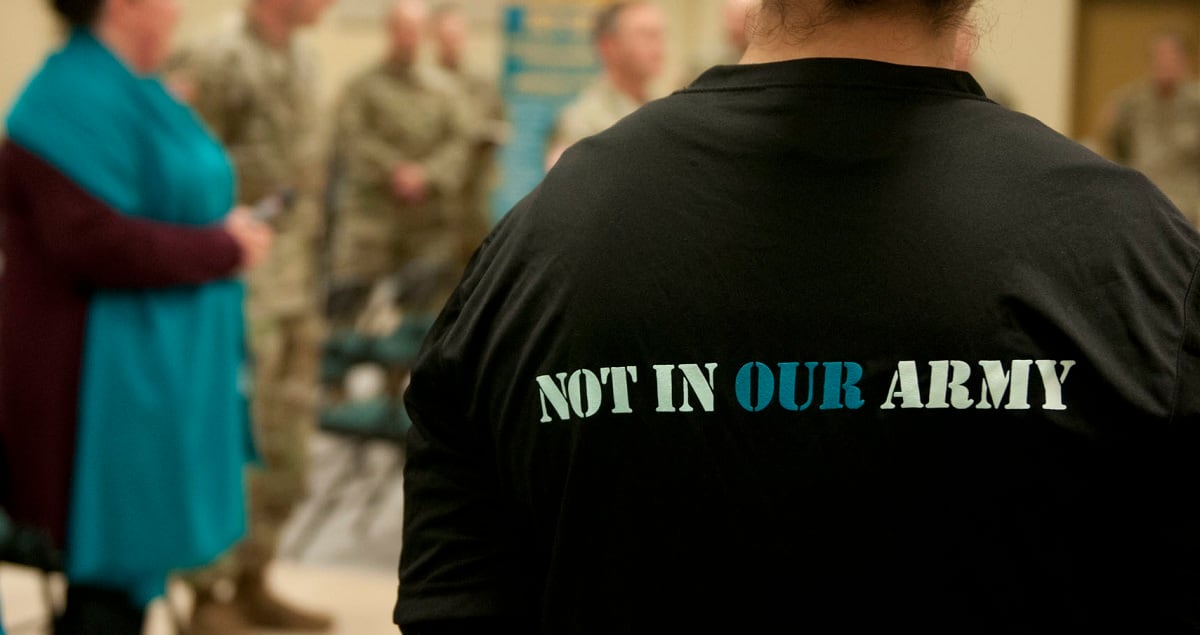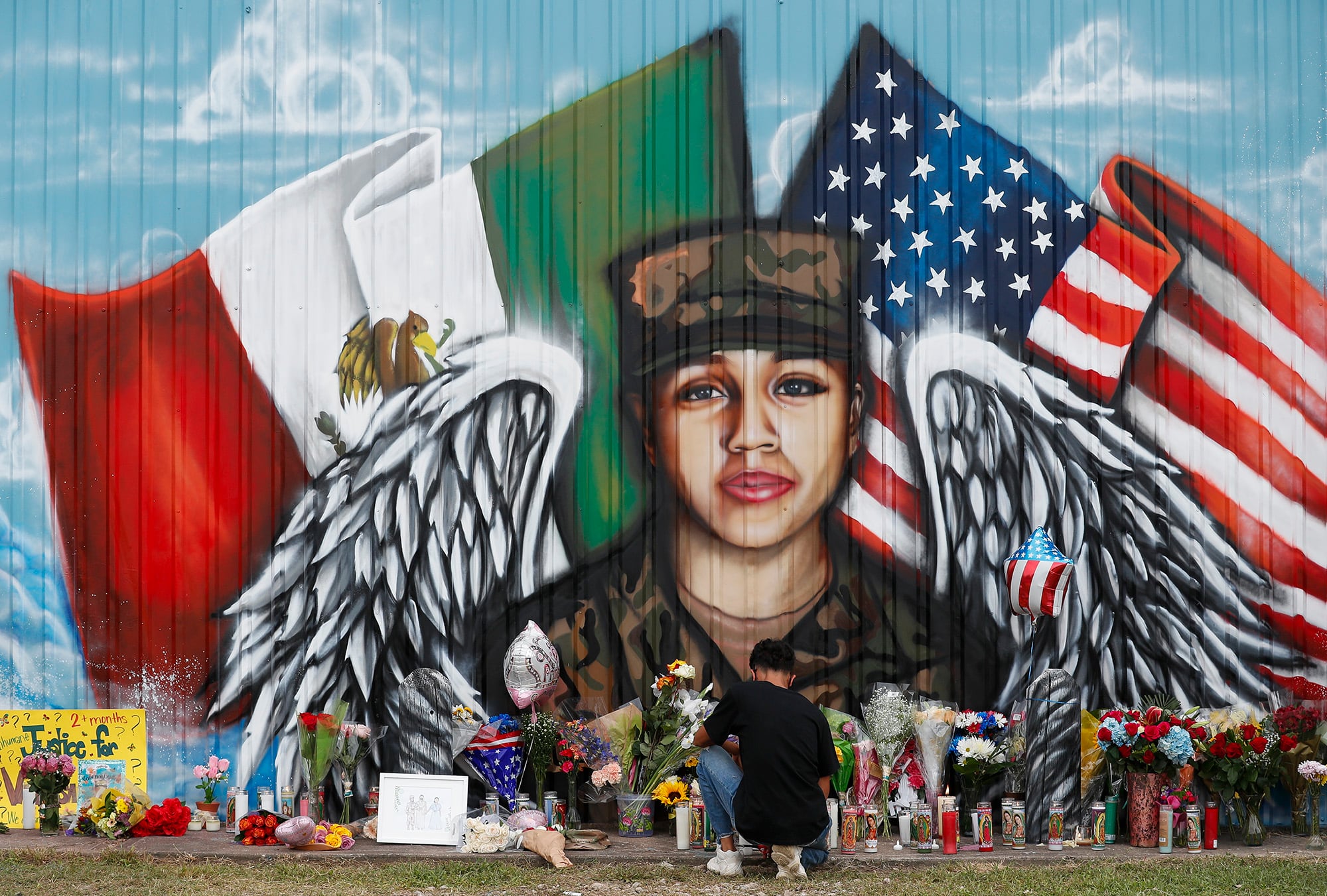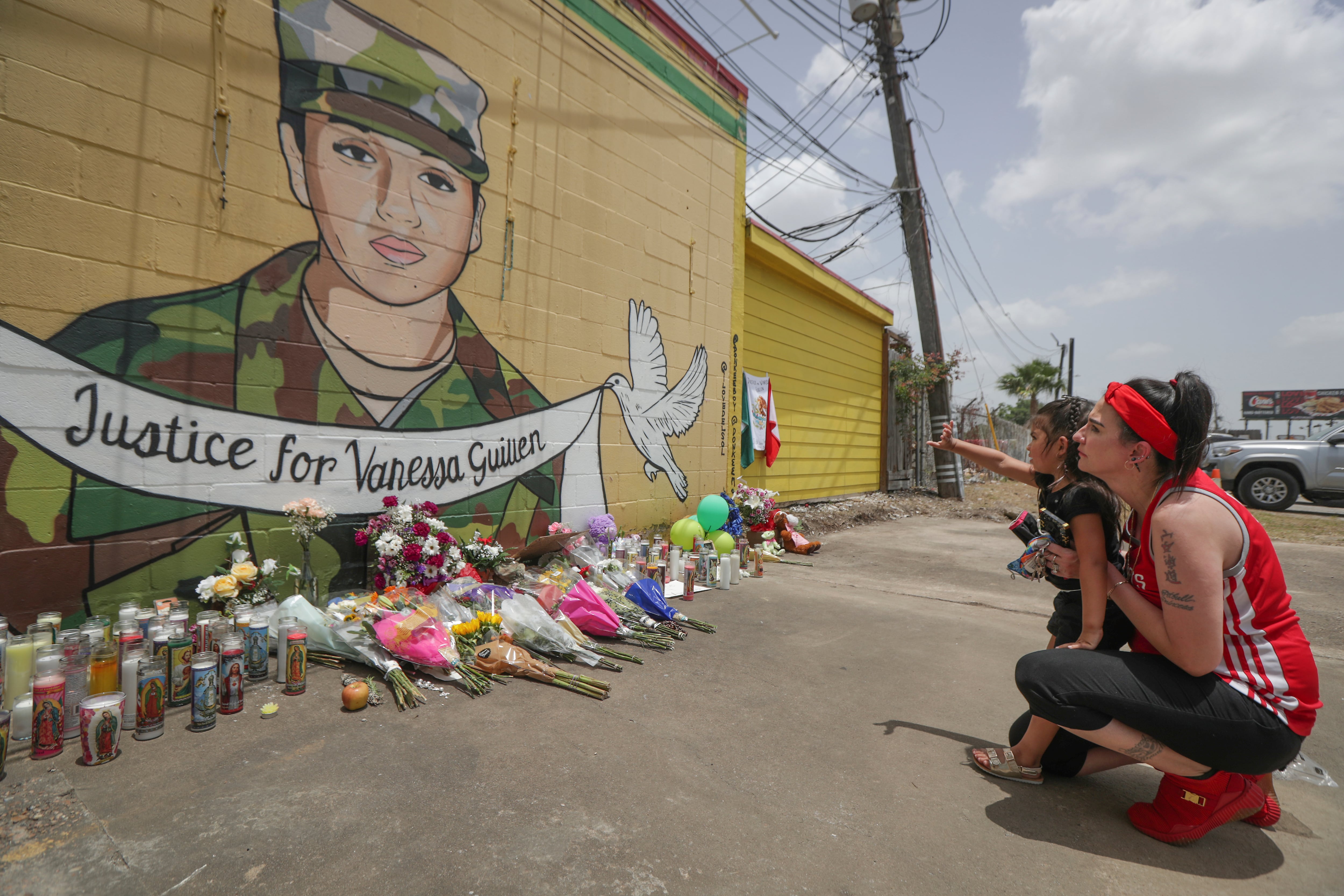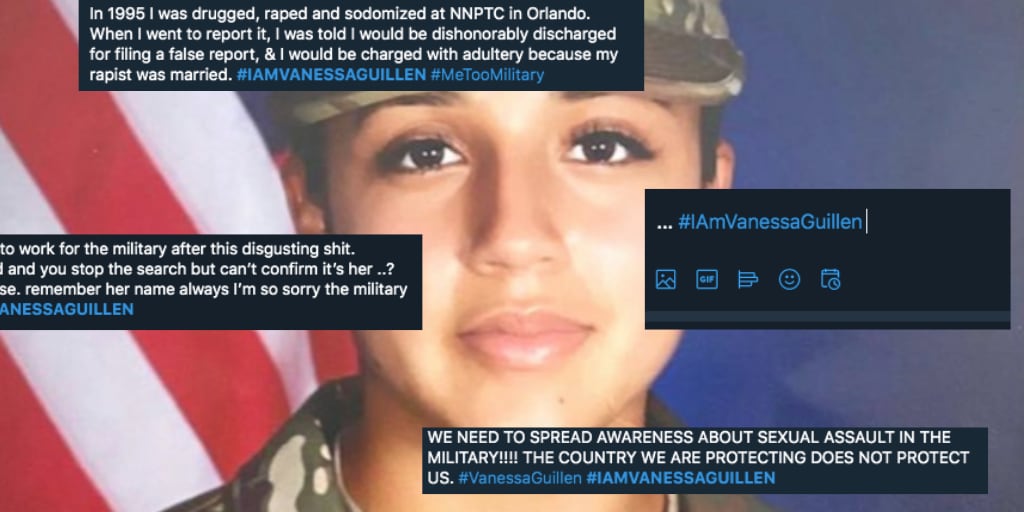A recent review of Fort Hood’s sexual harassment and assault prevention program concluded that the post overall meets Army standards. But the review team wasn’t initially able to look at the unit of slain Fort Hood soldier Spc. Vanessa Guillen, whose own sexual harassment allegations arose after her April 22 disappearance and sparked the assessment.
Army Forces Command dispatched a small team in late June to the central Texas installation. They distributed a written survey to about 225 soldiers from 12 battalions in six brigades on Fort Hood and held small group sessions involving the troops.
The results showed that roughly 90 percent of soldiers there have “high trust” in their leadership and approximately 86 percent hold a “high willingness” to report incidents to SHARP offices if they arise, according to Col. Patrick Wempe, the FORSCOM inspector general who discussed the review with Congress on Wednesday.
However, the review did not include Guillen’s unit, the 3rd Cavalry Regiment, because major developments in her case emerged just as the team was preparing to speak with them, Wempe added. Officials decided it wasn’t an appropriate time to interview soldiers there and a team was sent back this week to look at the regiment.
Citing confidentiality, Wempe said “it wouldn’t be appropriate to talk details” about the second review on Wednesday, but added that he expects it to be “very well-aligned” with the rest of the post minus some “slight variations” in how troops answered questions.
The first review team also found that 18 out of 52 women surveyed on Fort Hood, about one-third, reported being sexually harassed. The review didn’t determine whether those women ultimately filed SHARP complaints.
The number also concerned lawmakers and prompted questions about whether the standards of success for SHARP programs need to be changed.
“If over a third of the women on Fort Hood are reporting being sexually harassed, that is certainly a real concern of mine,” said Rep. Mikie Sherrill, a Democrat from New Jersey and a former Naval officer. “If a SHARP program operating at standard missed the sexual [harrassment] and eventual murder of a soldier at Fort Hood, the standard is flawed.”
The review team did not look at the actual standards of the SHARP program, but instead focused on the ability of units on post to meet the standards currently in place, according to Wempe.
RELATED

“I would have to defer to others in terms of any initiatives or movements within the Army to change the standard itself,” Wempe said. “We did see a lot of awareness of the topic — a lot of investment and engagement in the topic at all levels of the soldiers we talked to — and an absolute appreciation of the priority that needs to be placed on it.”
Some soldiers told the review team that they were hesitant to report incidents because they felt junior leaders lacked the practical experience to respond to allegations. Other soldiers said that the SHARP training they do receive is “repetitious and unimaginative,” Wempe stated.
The review is one of several Army inquiries underway and came after hundreds of service members publicly shared their own experiences with sexual assault and harassment on social media in solidarity with Guillen using hashtag #IAmVanessaGuillen.
Federal prosecutors say Guillen was killed by a fellow soldier in an armory on post.
Family members of Guillen have said she faced sexual harassment from a fellow 3rd Cavalry Regiment soldier prior to her killing. The young soldier told loved ones about the incidents but did not bring the allegations to her chain of command for fear of reprisal, the family said.
Guillen’s regiment commander, Col. Ralph Overland, launched an internal investigation into her sexual harassment allegations in June.
Investigators say Guillen was killed with a hammer by Spc. Aaron Robinson, 20, inside an armory on post. He killed her during a duty day and then enlisted the help of his girlfriend, Cecily Aguilar, in disposing of the remains, according to court records.

The two worked together to burn the body, dismember it, mix the parts with concrete and bury the remains in three holes near the Leon River, about 20 miles from post, the court records stated.
Aguilar was denied bail and pleaded not guilty to all three felony counts against her related to disposing of the remains. Robinson died from a self-inflicted gunshot wound when Killeen police officers attempted to arrest him. The motive for the killing has not been released by authorities.
The House Armed Services Committee hearing on Wednesday also included testimony from service members who were victims of sexual assault and harassment and looked at the larger issue beyond Fort Hood itself.
Lucy Del Gaudio, an Army veteran who said commanders discouraged her from reporting a sexual assault by a fellow soldier in 1992, said she believes little has changed in the military in the last 30 years, especially in light of the Guillen case.
“Women do not report because we fear for our safety,” she said. “We fear for our future. We fear for retaliation. Nearly every year the same reports have pointed to the rise in numbers of cases, yet we don’t know how many have gone unreported ... we have to do better by our women.”
Del Gaudio is part of the new group Justice for Vanessa pushing for massive changes within the military justice system, to include removing the military chain of command from some sexual harassment and assault investigations. The Guillen family attorney, Natalie Khawam, is working toward that goal, as well.
Khawam and the Guillen family will be discussing a piece of legislation called the #IAmVanessaGuillen bill with President Donald Trump in Washington on Thursday. It would establish for service members an “independent, neutral, third-party agency to disclose and report any kind of sexual harassment and sexual assault,” Khawam said.
RELATED

Khawam compared the third-party investigative agency to the Equal Employment Opportunity Commission, a federal agency that enforces civil rights laws against workplace discrimination. The proposed agency would be able to investigate allegations and make recommendations to the military on how to deal with perpetrators of sexual harassment and sexual assault.
But the plan has met strong resistance from the military and on Capitol Hill.
At Wednesday’s hearing, Rep. Trent Kelly, R-Miss., said he believes that Guillen’s sexual harassment claims and murder “are two separate things, not connected in any way.” He wants to see better training of troops on sexual harassment issues and more support services for women service members.
Guillen’s death also sparked an independent command climate review by Army Undersecretary James McPherson, which was announced on July 10 and will scrutinize Fort Hood on issues that go beyond sexual harassment and assault.
“There were concerns raised not just with sexual harassment, but other aspects as well, with regard to the greater community of Fort Hood and the surrounding community — raised by not only the Guillen family, but by the Hispanic community and Congress as well,” McPherson said earlier this month.
While the prevalence of sexual assault in the Defense Department has decreased by more than one third in the past 14 years, sexual harassment prevalence rates have been sustained over time, according to Dr. Nate Galbreath, deputy director of the DoD’s Sexual Assault Prevention and Response Office.
Additionally, “in our most recent active duty survey in 2018, we saw an increase in the prevalence of sexual assault for women,” Galbreath said.
Reports of such incidents have also been rising dramatically since 2006, Galbreath told the House lawmakers. That’s good news, he added, because it indicates more individuals are coming forward with their stories.
Editor’s note: This story has been updated to reflect that an Army Forces Command inspector general review team was sent back to Fort Hood in late July to finish the review of Spc. Vanessa Guillen’s unit.
Kyle Rempfer was an editor and reporter who has covered combat operations, criminal cases, foreign military assistance and training accidents. Before entering journalism, Kyle served in U.S. Air Force Special Tactics and deployed in 2014 to Paktika Province, Afghanistan, and Baghdad, Iraq.





